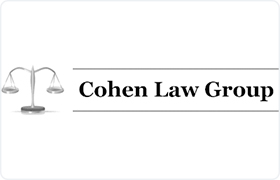 Plainville Real Estate Lawyers, Massachusetts
Plainville Real Estate Lawyers, Massachusetts
Sponsored Law Firm
-
 x
x

Click For More Info:
-
Cohen Law Group
500 Commercial St Unit 4R Boston, MA 02109» view mapBusiness, Real Estate, Accident & Injury Over 50 Years Of Experience
With over 50 years of experience, the Cohen Law Group is a well-established law firm located in the heart of Boston’s historic North End.
800-790-5110
Sponsored Lawyers
1-6 of 6 matches
Real Estate, Estate
Attorney Dowling is a Massachusetts and Rhode Island attorney with deep roots in Southeastern New England and a reputation for business savvy and pragmatism. Attorney Dowling is passionate about advocating on behalf of his clients. His service model is to work one-on-one with clients to develop creative legal and non-legal solutions to problems. Unlike attorney-client interactions with large law firms, Attorney Dowling's clients have ready access to their lawyer, over the phone, via email or in-person. Attorney Dowling represents a diverse range of companies, institutions, developers, individuals and families across many industries with a concentration in some of New England’s leading business sectors. Attorney Dowling holds a Bachelor of Arts degree in community planning from the University of Washington, in Seattle, a Master of Science degree in transportation engineering from the University of Washington and a Juris Doctor degree from New England Law in Boston. Attorney Dowling was a member of the City of Attleboro Planning Board for seven years and is now a member of the North Attleboro Zoning Board of Appeals. Benjamin Dowling lives in North Attleboro with his wife and two children.
(more)


 Herbert Cohen Boston, MA
Herbert Cohen Boston, MA Practice AreasExpertise
Practice AreasExpertise

